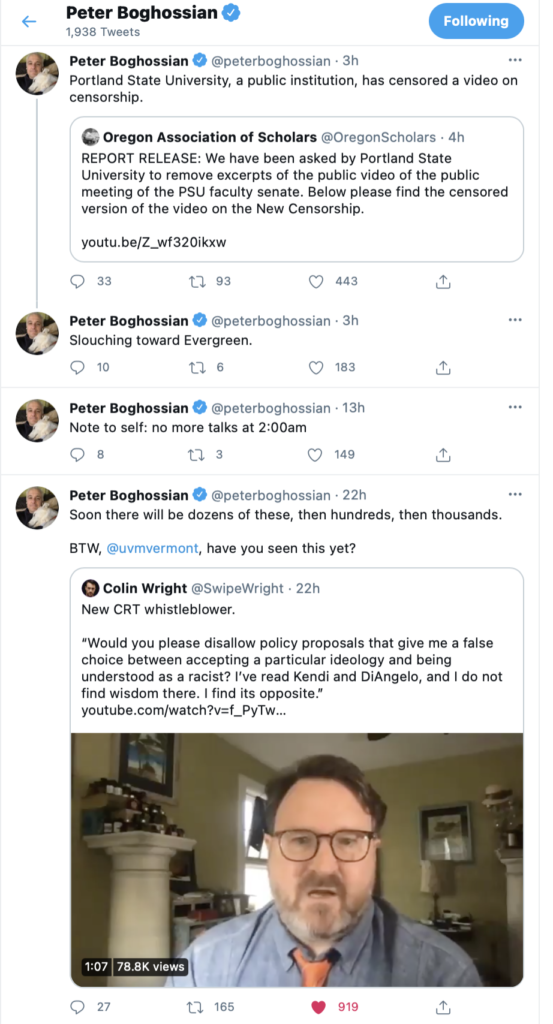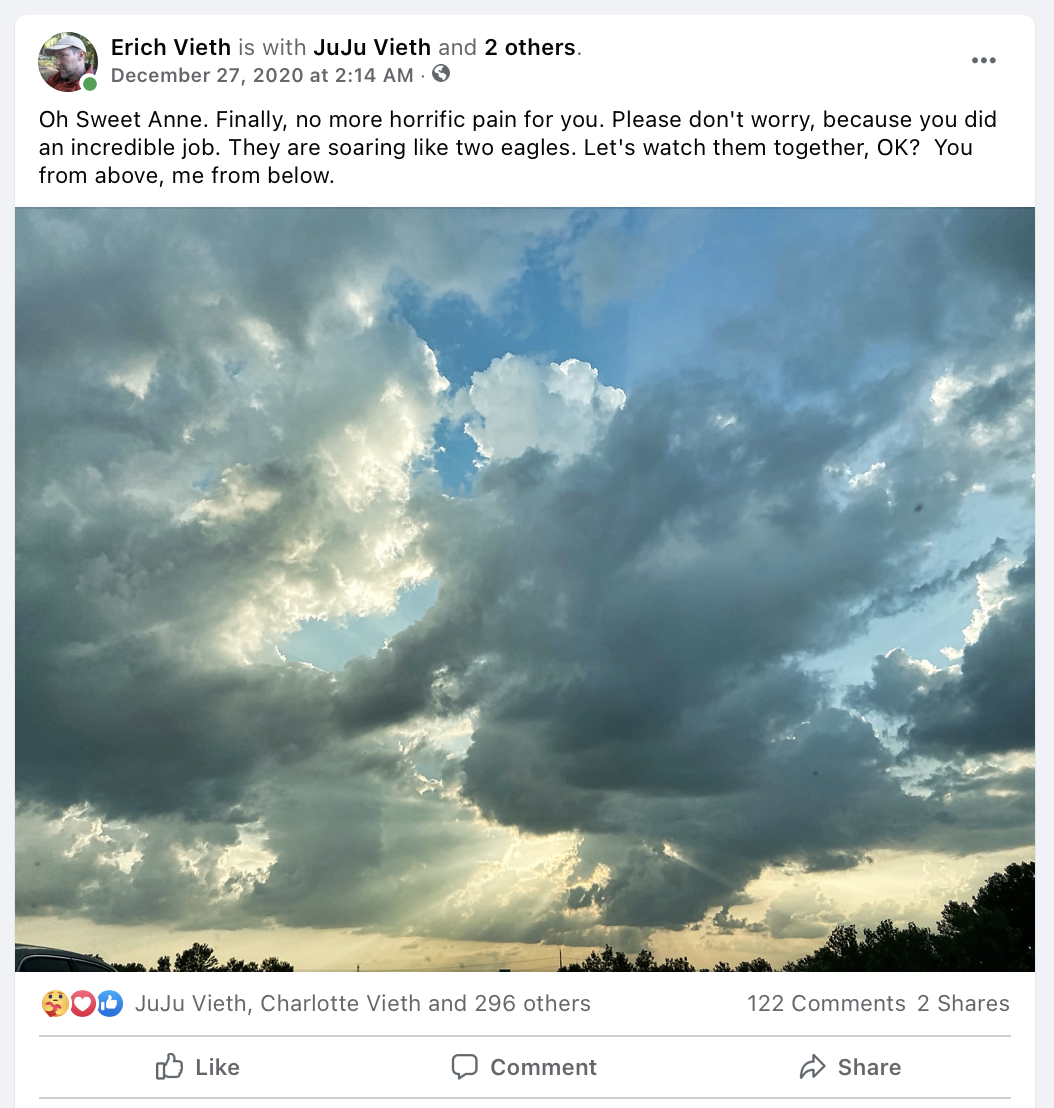Peter Boghossian: Portland State Censors Censorship Video. What to Expect Now . . .
Portland State University Professor Peter Boghossian has linked to a video that warns of actions by Portland State University to hide a public PSU video in which outrageous actions of censorship are being proposed by employees of PSU, including professors. Those proposed outrageous actions are described here in writing. Here's an excerpt from this written report:
The resolution then makes a series of sleights of hand, describing the sharing and commentary on the course slides in various dark tones, using words like “intimidation.” For example: “When faculty become active in, or even endorse or tacitly support, public campaigns calling for the intimidation of individual colleagues they disagree with, or with an entire faculty they disagree with, they are undermining academic freedom.” Thus, in a single sentence, the resolution imposes a gag order on criticisms of a university’s professors, programs, teaching, and research - - criticism which is itself the heart of academic freedom -- as an abuse of academic freedom. The resolution then affirms the new description of normal criticism as “bullying” and “cynical abuse” stating: “As Faculty, we must be thoughtful in our exercise of academic freedom and guard against its cynical abuse that can take the form of bullying and intimidation.”
The resolution, in redefining normal debate and criticism, as acts of “intimidation” and “bullying”, falls afoul not just of common sense but of constitutional protections and normal workplace employment law, especially for a public university where faculty governance and academic freedom are core principles subject to state laws. Nor does it contemplate the implications the resolution would have if applied to Woke Studies professors who regularly engage in such “intimidation” of their unWoke colleagues.
The resolution was presented for discussion and approval at a Portland State faculty senate meeting of March 1, 2021. Even by the standards of the contemporary academy, the live- streaming faculty senate “debate” on the resolution was notable in making painfully clear the disappearance of viewpoint diversity on campus and the emergence of a new racial justice activism animating taxpayer-funded universities. The meeting was live-streamed and then uploaded for public viewing on YouTube (the relevant half-hour section is from minutes 34:25 to 1:03:25).
Boghossian ends his Tweet by pointing to yesterday's video created by Aaron Kindsvatter, the most recent college professor to blow the whistle on oppressive Woke policies imposed by an American university (University of Vermont). It is impossible to overlook the similarity of Kindsvatter's complaints to the complaints of Jodi Shaw, who has been forced out of Smith College due to the hostile work environment Shaw experienced at Smith.
Boghossian ends his Tweet thread with this comment: "Soon there will be dozens of these, then hundreds, then thousands."
I agree. The tide is starting to turn.


